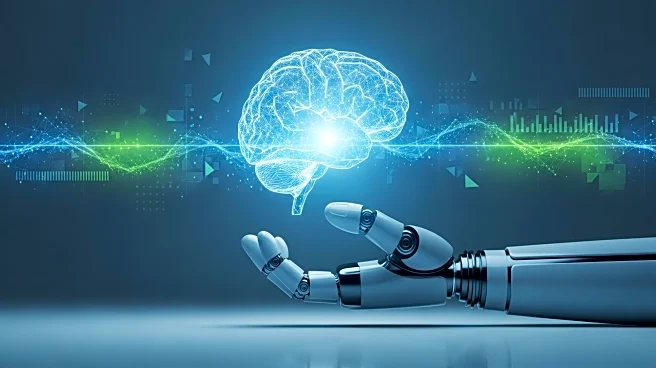What's Happening?
Walmart, the largest private employer in the U.S., is taking proactive steps to prepare its workforce for the evolving job market influenced by artificial intelligence and demographic shifts. The company hosted over 300 workplace experts and representatives from various companies as part of the Skills-First Workforce Initiative. This project aims to develop stable jobs based on skills rather than educational background. Walmart has already launched training and certification programs for roles such as truck drivers and maintenance technicians, which are in high demand due to retiring tradespeople. Next year, Walmart plans to introduce an AI skills program in collaboration with OpenAI, the company behind ChatGPT. CEO Doug McMillon emphasized the importance of adapting to AI-driven changes and leveraging new tools to enhance job roles across the company.
Why It's Important?
The initiative by Walmart is significant as it addresses the growing need for skill-based employment in the face of AI advancements. By focusing on skills rather than formal education, Walmart is setting a precedent for other companies to follow, potentially reshaping the U.S. labor market. This approach could lead to more inclusive employment opportunities, allowing individuals without college degrees to secure stable and well-paying jobs. The collaboration with OpenAI highlights the importance of integrating AI into workforce development, ensuring employees are equipped to handle technological changes. As AI continues to influence various sectors, Walmart's strategy may serve as a model for balancing technological progress with workforce stability.
What's Next?
Walmart's AI skills program is set to launch next year, marking a significant step in workforce development. The company will continue to invest in wages and training, aiming to reduce turnover and enhance job satisfaction. As AI tools become more prevalent, Walmart plans to maintain transparency and open communication with employees about ongoing changes. The focus will be on adapting roles to incorporate new technologies, ensuring employees can leverage AI to improve job performance. Other companies may observe Walmart's approach and consider similar initiatives to prepare their workforce for AI-driven changes.
Beyond the Headlines
Walmart's initiative could have broader implications for the U.S. job market, potentially influencing public policy on education and employment. By prioritizing skills over formal education, Walmart challenges traditional hiring practices, which may lead to a reevaluation of educational requirements across industries. This shift could encourage more companies to invest in skill-based training programs, fostering a more diverse and adaptable workforce. Additionally, the collaboration with OpenAI underscores the growing importance of partnerships between corporations and tech companies in driving workforce innovation.











